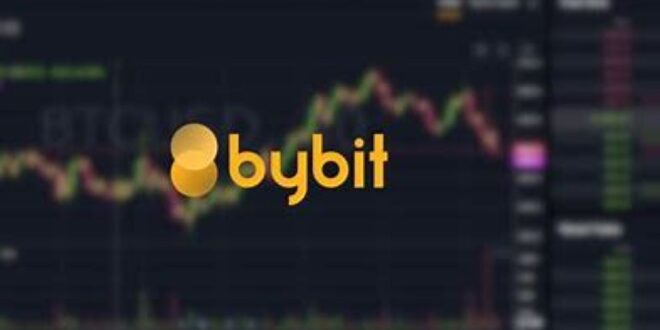Bybit, one of the leading cryptocurrency exchanges, has recently made waves by introducing 500x leverage on U.S. stocks and gold—a move that could revolutionize retail trading, but not without serious risks. The offering, which allows traders to control positions worth up to 500 times their initial investment, is raising questions about whether this is a breakthrough for the financial industry or a recipe for disaster.
The Promise of High Leverage
Leverage trading is not new in the financial world. It has long been available in traditional markets like forex and futures. However, Bybit’s aggressive move to offer 500x leverage on assets such as U.S. stocks and gold is uncharted territory. For traders, this means the potential to amplify profits exponentially from even small price movements in these assets. A 1% price change could theoretically result in a 500% return on investment—if the position is correctly timed.
Bybit’s decision to extend this high-leverage opportunity is positioning the platform as a disruptor in both traditional finance and crypto markets, giving retail traders access to powerful tools typically reserved for institutional investors. The exchange is betting on its ability to attract a new wave of active traders seeking to capitalize on volatility in the stock and commodities markets.
The Risk Factor
While the potential rewards of 500x leverage are enticing, the risks are equally significant. With such high leverage, even the smallest market movement in the wrong direction can lead to catastrophic losses. In fact, traders could lose their entire investment in a matter of minutes if the market moves against them.
Leverage at this level raises concerns over market stability, as large, rapid price swings in assets like gold or major U.S. stocks could lead to severe market corrections or cause ripple effects across the financial system. Experts worry that inexperienced traders could be lured into making reckless decisions, driven by the promise of massive returns, only to face ruin when positions are quickly liquidated in volatile conditions.
A Game-Changer for Retail Traders?
For retail traders who have long been underserved by traditional finance, Bybit’s move represents a potentially game-changing opportunity. High leverage allows smaller traders to compete with larger, institutional players, leveling the playing field. In markets like stocks and gold, where price movements can be slow and steady, Bybit’s leverage could allow traders to capture gains that would otherwise be out of reach with traditional trading methods.
The attraction is clear: by using high leverage, even small movements in the price of gold or major U.S. stocks could yield significant profits. This has the potential to democratize trading and create new opportunities for those who may not have large capital reserves to invest in conventional markets.
Concerns About Market Regulation
While the offering has the potential to create new opportunities for traders, it also raises regulatory concerns. Leverage trading has been a point of contention for regulators in many countries, with concerns that such high-risk trading could lead to widespread losses and market instability.
Bybit’s decision to offer 500x leverage on traditional assets like stocks and gold has drawn attention from financial regulators, who are scrutinizing the practice. In the U.S., the Securities and Exchange Commission (SEC) and the Commodity Futures Trading Commission (CFTC) have yet to weigh in on the implications of such high-leverage offerings in the retail market. Regulators may seek to impose restrictions or even outright bans on platforms offering such products.
As Bybit pushes the envelope with its 500x leverage offering, the financial world watches closely to see whether it can redefine retail trading or whether it is setting up a precarious environment for novice traders. The move is undeniably bold, but whether it will prove to be a breakthrough or blowback remains to be seen.
For traders, the lesson is clear: with great power comes great risk. Bybit’s 500x leverage may be a game-changer for those willing to play the high-stakes game—but the risks are steep, and not everyone will walk away a winner.
 Business Sandesh Indian Newspaper | Articles | Opinion Pieces | Research Studies | Findings & News | Sandesh News
Business Sandesh Indian Newspaper | Articles | Opinion Pieces | Research Studies | Findings & News | Sandesh News



